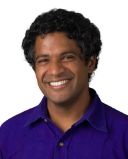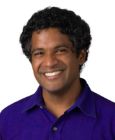Happiness
The Power of Intellectual Humility
What does it mean to be intellectually humble when it counts?
Posted April 13, 2022 Reviewed by Devon Frye
I enjoy talking to strangers when I’m travelling. This might be because I’m a psychologist, or because I always try to look for the best in people, or perhaps it’s a reflection of the fact that a dear family friend christened me “Tigger” when I was a child because of my apparently rampant extraversion.
Regardless, whether it’s in a cab, on a plane, or at a party, I’m likely to be the one happily chatting away with people I’ve never met before and will perhaps never see again. I’ve received primers on the history of tobacco in North Carolina, been subjected to multiple attempts at conversion by practitioners of various religions, discussed the question of whether all languages are in fact governed by universal laws, and been complimented as apparently “one of the good ones” (I try not to overthink that one now).

I take particular joy when strangers ask me what I do for a living. I always give them the same answer: I study happiness. They usually find this hilarious and tell me either that it suits my personality (a compliment?) or ask me what the keys to happiness are (I usually go with having close relationships, or not sweating the small stuff).
However, if I’m being honest, I’m not telling them the whole truth about what I study, which is how we can live good lives. That is—how we can live lives of happiness, meaning, and purpose by successfully overcoming the challenges, failures, and adversity that are defining features of our lives, and how can we successfully develop into the best version of ourselves.
The good life is not simply about feeling happy, but also doing things of value, feeling some control over your life, and figuring out what’s true about our world. These days, I tend to think that perhaps the most important key to living well is the ability to see and understand both yourself and the world for what it really is. This means having: a) an accurate sense of oneself, and b) insight into what we can and cannot control.
This is much harder than you’d think. We as individuals routinely believe that we’re better than average on pretty much any conceivable trait or ability. Many of us who grew up in cultural settings that prioritize individual choice and action further believe that we are masters of our universe and that we can bend our environment to meet our desires. This belief typically decreases as we age and are subjected to multiple life lessons that teach us the importance of luck in our lives.
Seeing the world for what it really is is a form of wisdom. But it turns out that being wise is very hard. We each have our own biases (towards our own preferred in-groups, our families, our countries, our ideological commitments) that often shield us from the truth. Are there traits of character that we can develop to ensure that we understand the world the way it is?
I think intellectual humility may be one such trait. Being intellectually humble involves understanding your cognitive limitations—in simpler terms, it means acknowledging that you could be wrong about something. If you’re not open to acknowledging that you could be wrong, you can’t learn anything new about the world; you’re not going to be able to change your beliefs and grow.
As a human being, you probably intuit that this is a very hard thing to do.
It turns out that there is some evidence that backs up this intuition. In a study my colleagues and I at Wake Forest University conducted in 2017, we asked college students twice a day for three weeks if they had exhibited the thoughts, feelings, and behaviors characteristic of intellectual humility in an argument with someone over the previous twelve hours. The students then rated the extent to which they sought out reasons for why their current opinions could be wrong and used new information to reevaluate their existing beliefs. It turns out that they were more likely to manifest humility in situations where they saw the person they were arguing with as moral and therefore trustworthy.
Conversely, they were less likely to deploy humility in situations where they found the interaction to be disagreeable. Interestingly, the content of the disagreement—morality, facts, personal opinions—didn’t have an impact on the degree of intellectual humility. More important was what the speaker thought of their interlocutor.
What does it mean to be intellectually humble when it counts? I don’t know, to be honest (See what I did there?). But perhaps one way forward is to be mindful of how easily we can slip into defensiveness when we get into arguments, given that we all too easily see critiques of our understanding as critiques of our character. If we can remind ourselves of this tendency, perhaps we can find a way to remind ourselves that our interlocutors are not bad people, and that we can disagree without being disagreeable. This is a hard task, especially in the current political climate, as engaging with people we disagree with in this manner takes trust, curiosity, and open-mindedness.
I’ve learned a lot from my fellow passengers on my travels—not only new insights in areas outside my expertise, but also how other Americans outside a university setting understand and approach their world. These conversations have not always been easy, and I have confronted my limits at times. For example, while I think I generally handle comments that are arguably prejudiced with some degree of grace, I have recently found debating with anti-vaxxers to be an impossible task. Understanding the world involves understanding the perspectives that others bring to it, and this requires both patience and skill that can sometimes be difficult to muster.
One key challenge, I think, is remaining intellectually humble and open-minded as you grow older and develop (reasonably justifiable) beliefs about your own competence and abilities. For example, as a psychologist with what I believe to be a deep understanding of the research on well-being and personality, as well as a broader appreciation of the scientific method and scientific thinking, I unconsciously approach most conversations that touch on these topics with an “expert” mindset. However, Socrates taught us many years ago that “knowing oneself” involved interrogating one’s claims to knowledge, and that true knowledge may in fact involve a deep recognition of one’s ignorance.
In a way, gaining knowledge also involves dealing with the curse of knowledge—that complacent feeling that you’ve got it all figured out. In academia, I’ve found that increasing seniority is typically met with deference and occasionally (unwarranted) veneration. As the classicist Edith Hall noted in a 2019 talk, remaining critical of one’s own ideas and open-minded to others’ views in such a context takes some pretty significant—and constant—effort.
Both our psychology and our contexts make admitting what we don’t know very hard. We care about fitting in with family and friends, maintaining our ideological commitments, and feeling good about ourselves, all of which make facing up to the truth challenging. But I think we are also creatures that care about the truth. Caring about the truth involves being vulnerable about what we don’t know and inhabiting such a state can be unnerving. However, I think that taking such chances in our daily lives is key to achieving a rich and fulfilling life.
This essay is reprinted from the book Radical Humility, published by Belt Publishing, and edited by Rebekah Modrak and Jamie Vander Broek.




